Digital Security eLearning Platform
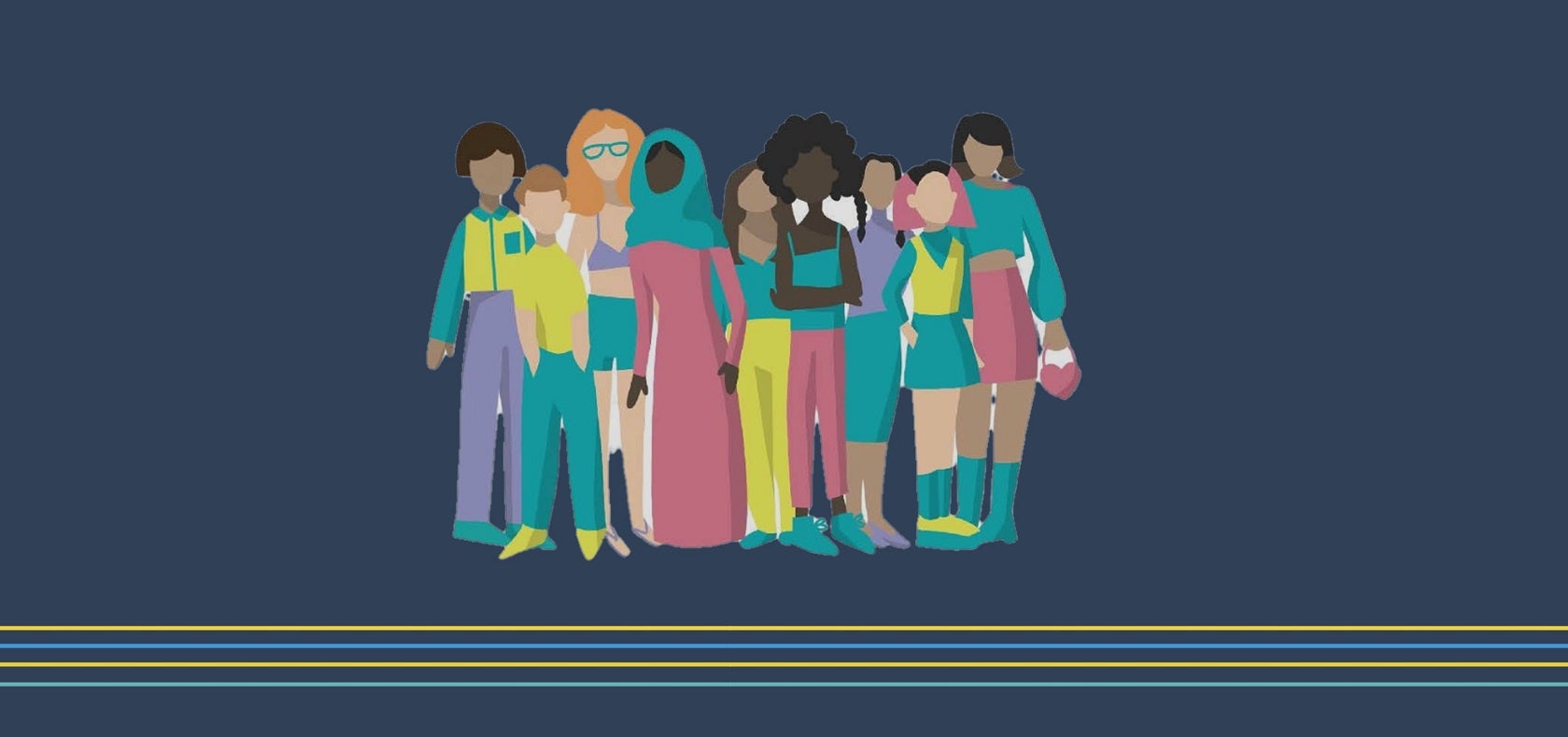
Digital Security and the Women, Peace and Security Agenda in Asia and the Pacific
Welcome. This UN Women platform offers free learning resources.
The modules are designed for women human rights defenders, women’s civil society organizations and others engaged in the Women, Peace and Security agenda as well as the promotion of gender equality and women's empowerment in Asia and the Pacific. However, they are applicable to a wider audience.
How to use this platform
There are four eLearning modules which cover different aspects of digital security. The modules are self-paced and free. Within each module, you can choose which areas you wish to learn more about. Simply enrol for each course that interests you and click to begin. Upon successful completion of a course, you will receive an electronic certificate.
The world is experiencing a rapid rate of digitalization. South-East Asia ranks among the regions with the highest number of Internet users in the world. As internet use grows, so too does the number of people who may be exposed to cyber harms and risks.
Women and persons with diverse sexual orientation, gender expression and identity, and sex characteristics (SOGIESC) are disproportionately targeted by online harms. Women with public-facing functions – such as politicians, journalists, peacebuilders, and human rights defenders – face an added layer of risk, as online attacks are increasingly deployed against them to silence their voices and discredit their work.
While the nature and frequency of cyber harms and digital security threats targeting women differs from those targeting men, there are few gender-responsive training resources currently publicly available. This UN Women Digital Security eLearning Platform was developed to fill this gap, and to offer digital security training resources tailored to the needs of women and gender equality advocates across South-East Asia.
The modules are evidence-based and build on research conducted by UN Women and key partners.
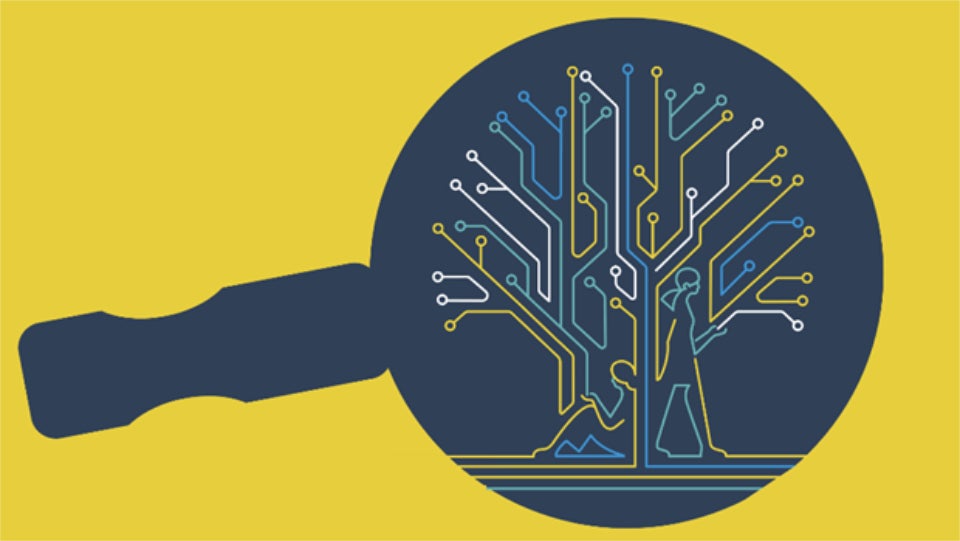
Key cybersecurity concepts, understood from a human-centered lens. The course outlines how the Women, Peace and Security agenda can be used to tackle key cybersecurity concerns faced by women, in particular women human rights defenders and representatives of women’s CSOs.
We recommend that you start by taking this course, as it takes you through key concepts which will be revisited in the other courses.
Estimated time: 2h
Languages: English, Thai, Vietnamese
This module is based on key findings that emanated from the research report, Cybersecurity Threats, Vulnerabilities and Resilience among Women Human Rights Defenders and Civil Society in South-East Asia, produced by the United Nations University Institute in Macau and the UN Women Regional Office for Asia and the Pacific.
In this module, you will learn about the relationship between gender and cybersecurity, build understanding of what human-centric cybersecurity means, and understand the unique issues for women and women advocates in digital contexts.
Learning objectives
- Be aware of the digital gender divide and gender-specific risks in cyberspace and how these influence opportunities to leverage peace and security through the use of ICTs.
2. Be familiar with cybersecurity concepts and be able to differentiate and define techno-centric and compared to human-centric approaches to cybersecurity.
3. Understand how gender considerations influence the practices and outcomes of cybersecurity.
4. Develop an understanding of the differences and similarities between online gendered harms and cybersecurity threats and how these are experienced.
Click to commence in your preferred language:
Language versions under development:
- ภาษาไทย (Thai)
- Tiếng Việt (Vietnamese)
Additional resource
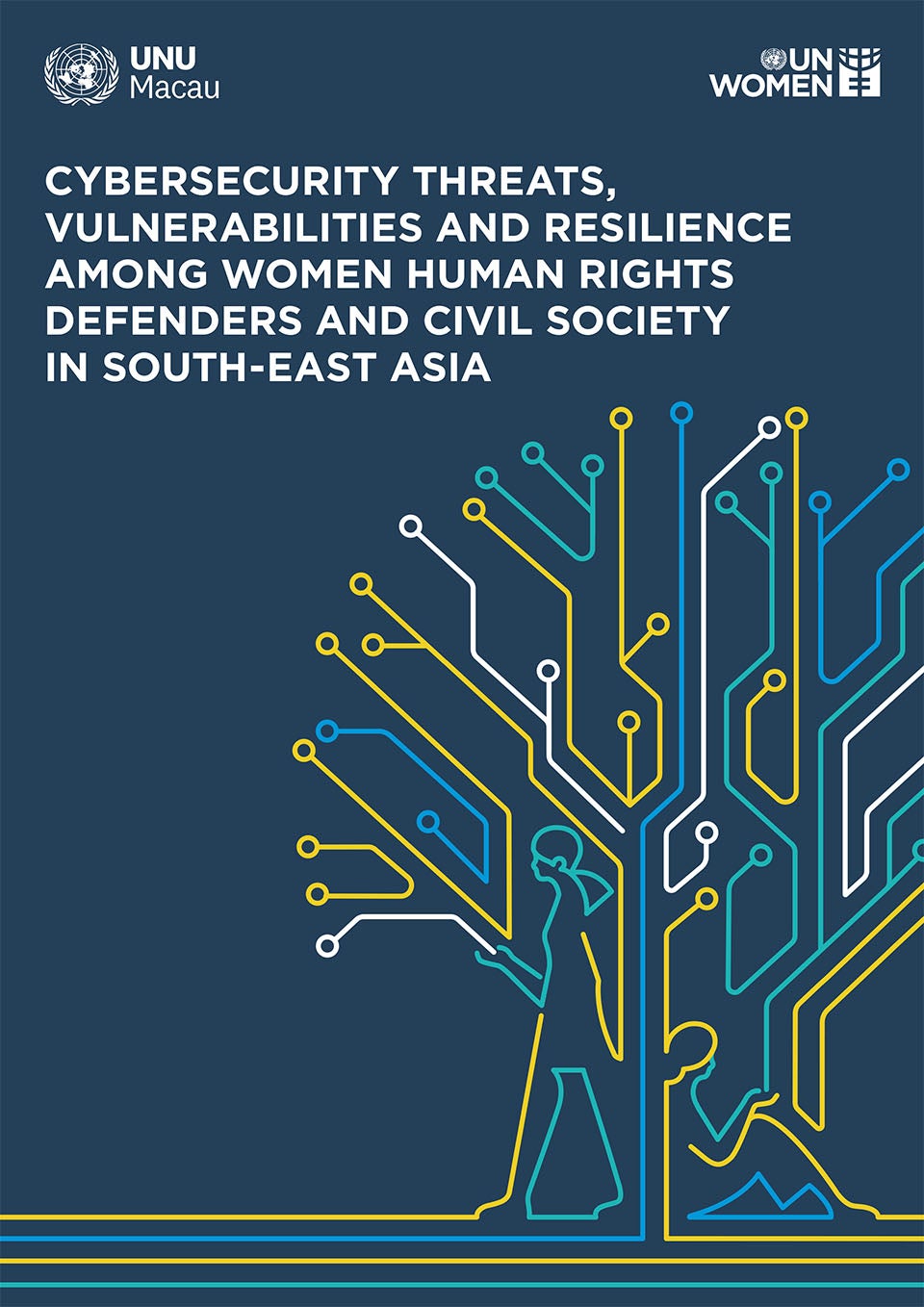
Cybersecurity Threats, Vulnerabilities and Resilience among Women Human Rights Defenders and Civil Society in South-East Asia
View online/download:
English
- Full report (PDF, 2.7 Mb)
- Research summary (PDF, 835 Mb)
For more information about this research report, please visit Publications.
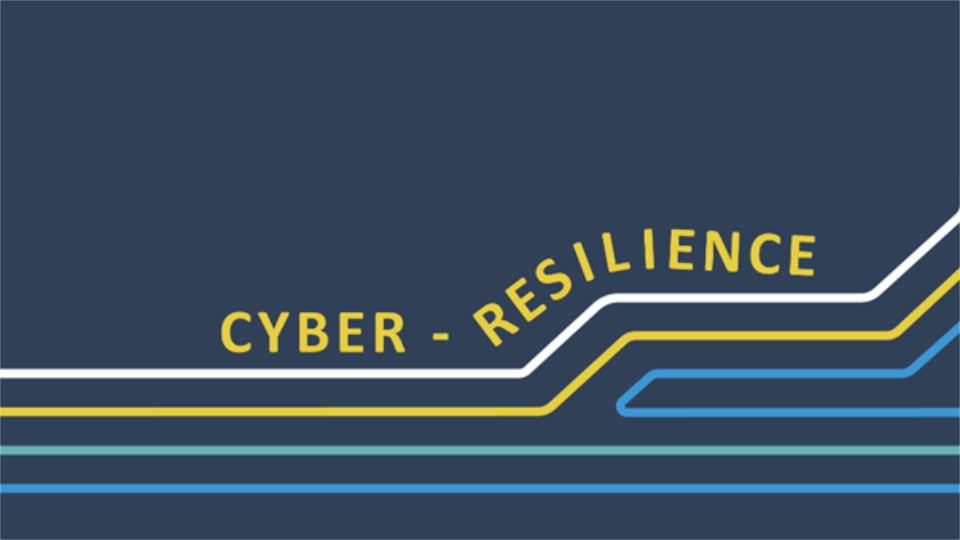
Recommended cybersecurity practices and practical steps you can take to protect your data and accounts, while staying resilient to cyber harms such as hacking and other types of data breaches. This module is tailored to specific needs raised by women human rights defenders in South-East Asia, and comprises three courses:
Estimated time: 5h
Languages: English, Thai, Vietnamese
This course is based on key findings that emanated from the research report Cybersecurity Threats, Vulnerabilities and Resilience among Women Human Rights Defenders and Civil Society in South-East Asia produced by the United Nations University Institute in Macau and the UN Women Regional office for Asia and the Pacific. This module maps out the elements of the cybersecurity ecosystem and introduces frameworks to help understand the key concepts in cybersecurity.
It comprises three courses where you will learn more about the following.
- Foundations of Cybersecurity Management for WHRDs and WCSOs
Learning objectives
- Make sense of the cybersecurity ecosystem for WHRDs and WCSOs in terms of the associated resources, vulnerabilities, threats, responses, and harms.
- Gain familiarity with the basic terminology and concepts in cybersecurity.
- Understand the risk management process and be equipped to undertake cybersecurity risk management.
- Understand how responses and countermeasures fit within the larger cybersecurity and risk management practice.
- Securing your data
Learning objectives
- Gain a deeper understanding of data-related cybersecurity threats, their gender implications, and how they unfold with a specific focus on impacts for WCSOs and WHRDs.
- Be familiar with responses to deal with these common cybersecurity threats.
- Be able to put into practice some of the critical cybersecurity responses.
- Being secure online
Learning objectives
- Gain a deeper understanding of threats against WHRDs and WCSOs associated with online accounts, communications, and web browsing, their gender implications, and how they unfold.
- Be familiar with responses to deal with these threats.
- Be able to put into practice some of the critical cybersecurity responses.
Click to commence in your preferred language:
Language versions under development:
- ภาษาไทย (Thai)
- Tiếng Việt (Vietnamese)
Additional resource
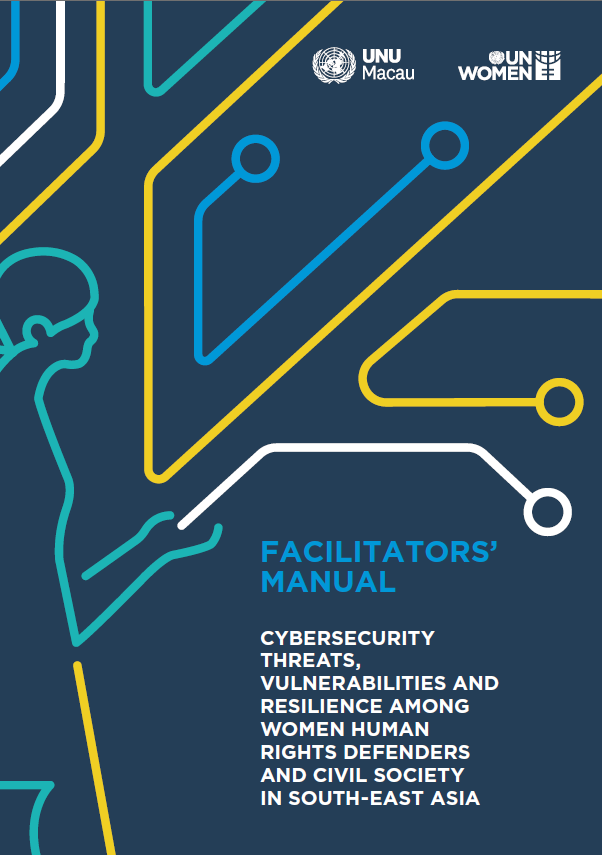
Facilitators’ Manual: Cybersecurity Threats, Vulnerabilities and Resilience Among Women Human Rights Defenders and Civil Society in South-East Asia
View online/download:
- English (PDF, 1.8MB)
For more information about this manual, please visit Publications.

How to detect and respond to online disinformation and related online harms and risks. This course is tailored to youth, ages 16-24, yet it addresses issues relevant to all Internet users, irrespective of age. Comprises three courses.
Estimated time: 3h
Languages: English, Bahasa, Bangla, Cebuano, Sinhala, Tamil, Tagalog, Thai, Tetum, Vietnamese.
This module was designed by a team with expertise in education, adolescent and women’s mental health, as well as 18 local cultural and language experts and young advocates in six Asian countries, in partnership with Ridgeway Information and Girl Security. In designing this course, the ambition was to: (i) Validate and amplify young people’s voices in online interactions; (ii) Support participants to identify and stop distribution of hate speech and disinformation; and, (iii) Empower participants to spread positive content online and challenge hate speech and misinformation. The course consists of three sub-modules:
Course 1: Navigating Disinformation
Learning objectives
- Understand the variety in your online environment and how you can safely use and interact with online platforms as a woman, girl, or gender minority.
- Recognise and understand the meaning, intent, and spread of disinformation, misinformation and hate speech (also known as malinformation) and its gender-related impacts.
- Understand how misinformation, disinformation, hate-speech and other forms of online harms impact women, girls and gender minorities
- Learn how to combat these issues by applying critical thinking to new pieces of information.
Course 2: Secure Plus
Learning objectives
- Deepen your understanding of how misinformation, disinformation and hate speech and other types of online harms impact women, girls, and gender minorities.
- Recognise how the impact of misinformation, disinformation and hate speech differs for those who are marginalized, for example based on their religion, ethnicity, ability or sexual orientation.
- Deepen critical thinking skills relating to online content and potentially harmful content and misleading information
Course 3: Empower and Advance Plus
Learning objectives
- Learn how to effectively combat misinformation, disinformation and hate speech by applying critical thinking to new pieces of information.
- Be equipped to create a positive, inclusive and empowering online space for girls, women, and gender minorities.
Click to commence in your preferred language:
Language versions under development:
- Cebuano
- Sinhala (Sri Lanka)
- Tagalog
- Tamil (Sri Lanka)
- ภาษาไทย (Thai)
- Tiếng Việt (Vietnamese)
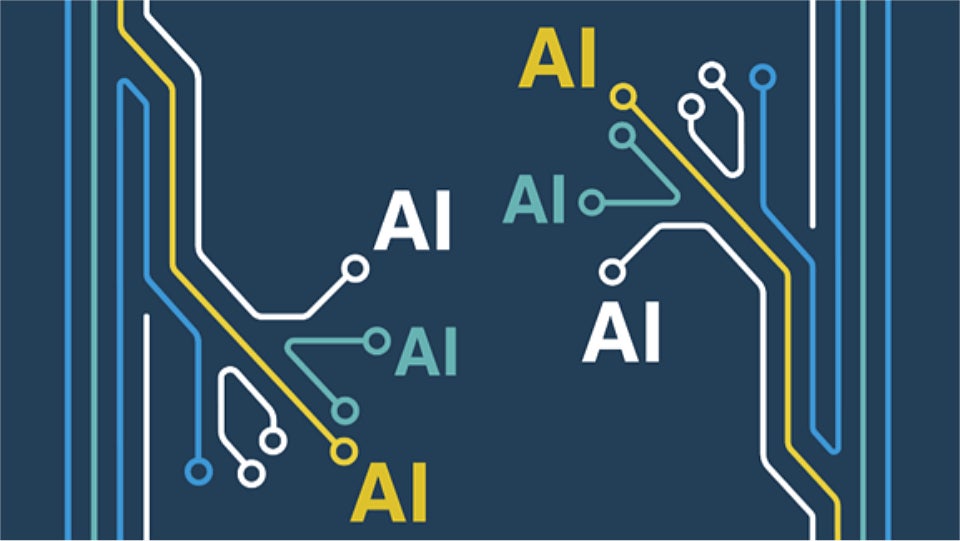
What is artificial intelligence (AI) and how is it used in peace and conflict settings. The course addresses key gendered risks across available AI systems, and how these can be addressed.
Estimated time: 3h
Languages: English, Thai, Vietnamese
This course is based on key findings that emanated from the research report Artificial Intelligence and Women, Peace and Security in South-East Asia produced by the United Nations University Institute in Macau and the UN Women Regional office for Asia and the Pacific. This course seeks to outline AI applications of particular relevance to peace and conflict settings from a gender lens.
Learning objectives:
- Understand what AI is and how gender dynamics affects its usages and applications.
- Be aware of AI usages in the context of peace and conflict and how this can affect women and girls.
- Be familiar with how AI applications can be used to support gender-responsive peace efforts.
- Develop an understanding of key policy considerations for AI development from a Women, Peace and Security lens.
Click to commence in your preferred language:
Language versions under development:
- ภาษาไทย (Thai)
- Tiếng Việt (Vietnamese)
Additional resource
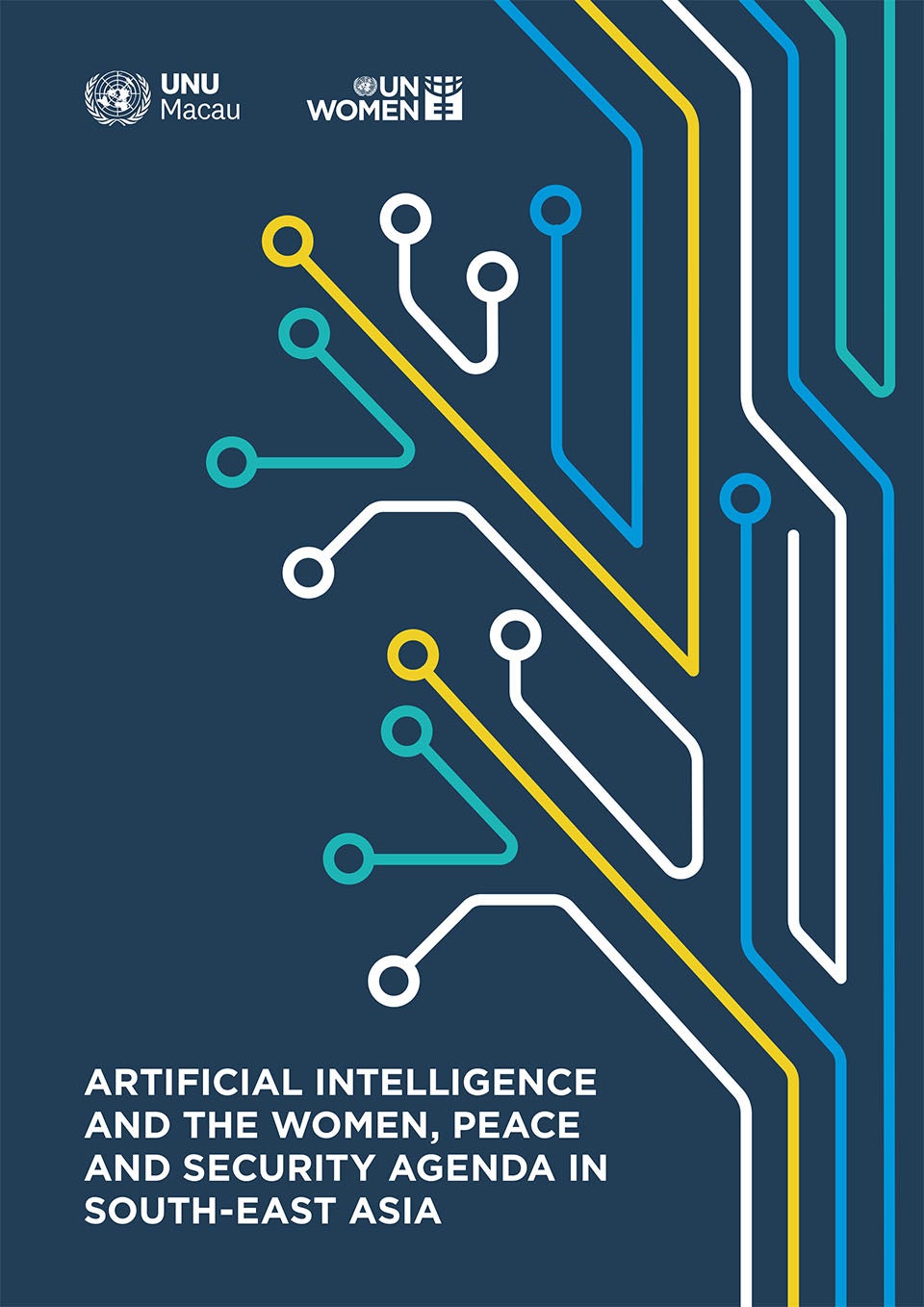
Artificial Intelligence and Women, Peace and Security in South-East Asia
View online/download
English
- Full report (PDF, 1.18 Mb)
- Research summary (PDF, 918 Mb)
For more information about this research report, please visit Publications.
Enquiries: [ Click to reveal ]
This platform was created by the UN Women Regional Office for Asia and the Pacific in partnership with Ridgeway Consulting Ltd. It has been made possible with the generous support of the Government of Australia, under the Cyber and Critical Tech Cooperation Program, and the Government of the Republic of Korea’s Ministry of Gender Equality and Family, and through contributions from the UN Women Centre of Excellence for Gender Equality in Seoul, Republic of Korea.
